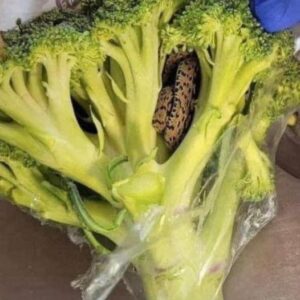Note: we are republishing this story which originally made the news in April 2016.
A Lancashire couple is riding high after a fortuitous beach find that could be worth a jaw-dropping £50,000, thanks to what they initially thought was just a smelly ‘rock.’
Gary and Angela Williams, hailing from Overton, Lancashire, were enjoying a leisurely stroll along Middleton Sands beach near Morecambe Bay when a pungent odor caught their attention.
Their noses led them to a peculiar-looking object, resembling a chunk of ambergris, or ‘whale vomit,’ a valuable ingredient in perfume production.
Having read about the prized substance in a newspaper, the couple swiftly wrapped the massive lump in a scarf and brought it home for further examination.
Gary, a 48-year-old engineer, later weighed the mound on his fishing scales, revealing a weight of 1.57kg—a substantial find, albeit slightly smaller than a lump discovered several years ago, which fetched a staggering £120,000 valuation.
Now, Gary and Angela, a 49-year-old nurse, are fielding offers from potential buyers for their unique discovery, likened to a rugby ball in size.
Ambergris, often dubbed ‘floating gold,’ holds immense value to perfume makers due to its rarity and unique properties. It originates from the hardened intestinal slurry of sperm whales and is believed to serve as protection against ingested sharp objects.
This extraordinary substance takes years to form and can drift in the ocean for extended periods before washing ashore. Over time, exposure to sunlight and seawater transforms it into a smooth, compact rock, enhancing its allure.
Gary described their beach find as ‘a bit of a shock,’ recounting the distinctive scent resembling a blend of squid and farmyard manure. He noted its rock-hard rubber ball texture and candle-like wax feel, adding to the intrigue surrounding their discovery.
Expressing hope that the potential proceeds from selling the ambergris could fulfill their dream of owning a static caravan, Gary and Angela frequently comb the beach for unique treasures during their walks.
Since their discovery, the couple has taken prudent steps to ensure the proper handling and potential sale of their extraordinary find. They’ve sought expert opinions from specialists in France and New Zealand while prudently storing the lump.
Their cautious approach mirrors the success of the 2.7kg lump discovered in Morecambe in 2013, which was valued by experts at up to £120,000.
For now, the Williamses eagerly await the outcome of their negotiations, anticipating a significant windfall from what started as a simple beach stroll.
Sources: Mirror






